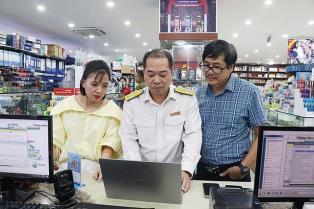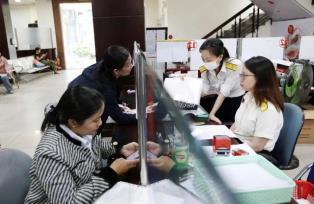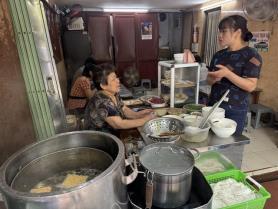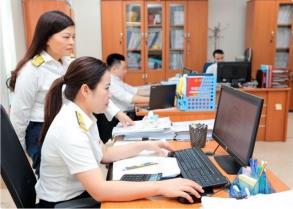The Ministry of Industry and Trade is preparing a decree to replace Decree No 69/2018 on foreign trade management with stricter provisions on temporary imports, including a maximum 60-day storage period for temporary imports in Việt Nam.

HÀ NỘI — New regulations are being drafted to tighten control over temporary import and re-export with an aim to prevent loopholes for trade frauds and smuggling, according to the Ministry of Industry and Trade.
The ministry is preparing a decree to replace Decree No 69/2018 on foreign trade management with stricter provisions on temporary imports, including a maximum 60-day storage period for temporary imports in Việt Nam.
Extensions would be allowed only twice for no more than 30 days each, compared to the current practice of no limit on storage time length.
After the deadline, goods must be either re-exported or destroyed.
In addition, goods which are temporarily imported and re-exported must be transported through international and main border gates with crossings at small gates or trails requiring the Prime Minister’s approval, aiming to reduce smuggling.
The draft also requires permits for sensitive or under-special-management goods.
Đinh Trọng Thịnh, an economic expert, said that tightening temporary imports and re-export would be crucial to close loopholes exploited for smuggling.
There had been cases of prohibited goods entering Việt Nam as temporary imports then sold in the domestic market, Thịnh said, adding that requiring temporarily imported goods to be transported through international and main border gates would be one among important measures to reduce smuggling and prevent tax losses.
According to Huỳnh Thanh Điền, an economist, the US recently imposed a 20 per cent reciprocal tax on Vietnamese goods. Notably, a tax rate of 40 per cent will be applied for goods identified as transshipped.
If temporary import is allowed for too long, companies could finish processing and mislabel goods as made-in-Vietnam before shipping them to the US to avoid tax.
This will not only hurt a single business but undermine the entire industry.
He noted that the US remained a key market of Việt Nam, urging caution over product origin.
The proposed maximum storage period for temporary imports was reasonable to prevent frauds in product origin, Điền said, adding that further reforms are needed to streamline customs procedures to enhance compliance.
"As Việt Nam is moving toward becoming a global logistics centre, the purpose of tightening temporary imports and re-exports is not about tax losses but about building a healthy export environment that attracts international trade and fosters growth in logistics services and supporting industries," Điền said.
Nguyễn Thị Thu Hoài, Deputy Chairwoman of Anti-Counterfeiting Fund’s management council, said the draft was a push to safeguard the domestic market against trade frauds.
The import and re-export mechanism had long been taken advantage of for smuggling and counterfeits, she said, adding that stricter limits on storage times and tightened control on traffic would sharply reduce the risk of banned goods being legitimised.
The new regulations must be consistent with the Law on Foreign Trade, the Law on Customs and the Law on Tax Management as well as international treaties, she said.
Hoài also urged a transparent supervision mechanism and quality check system at international checkpoints to identify counterfeits before clearance.
It was also necessary to develop strict procedures for destruction to ensure environmental safety and protect the legitimate rights of businesses, she added. — VNS





